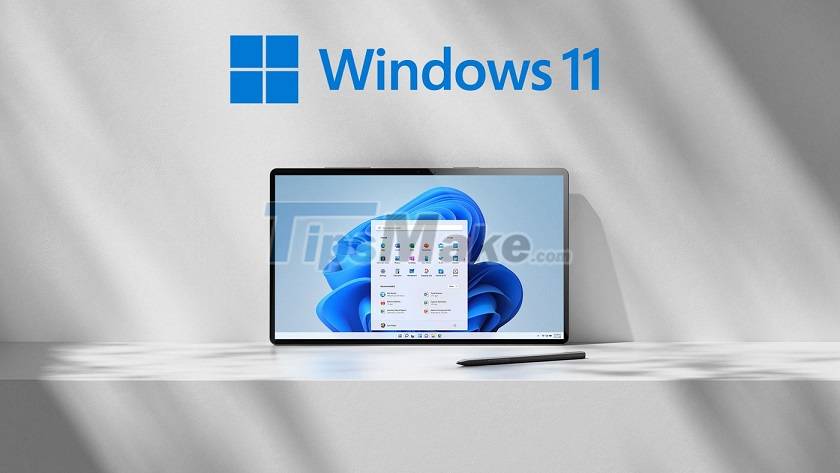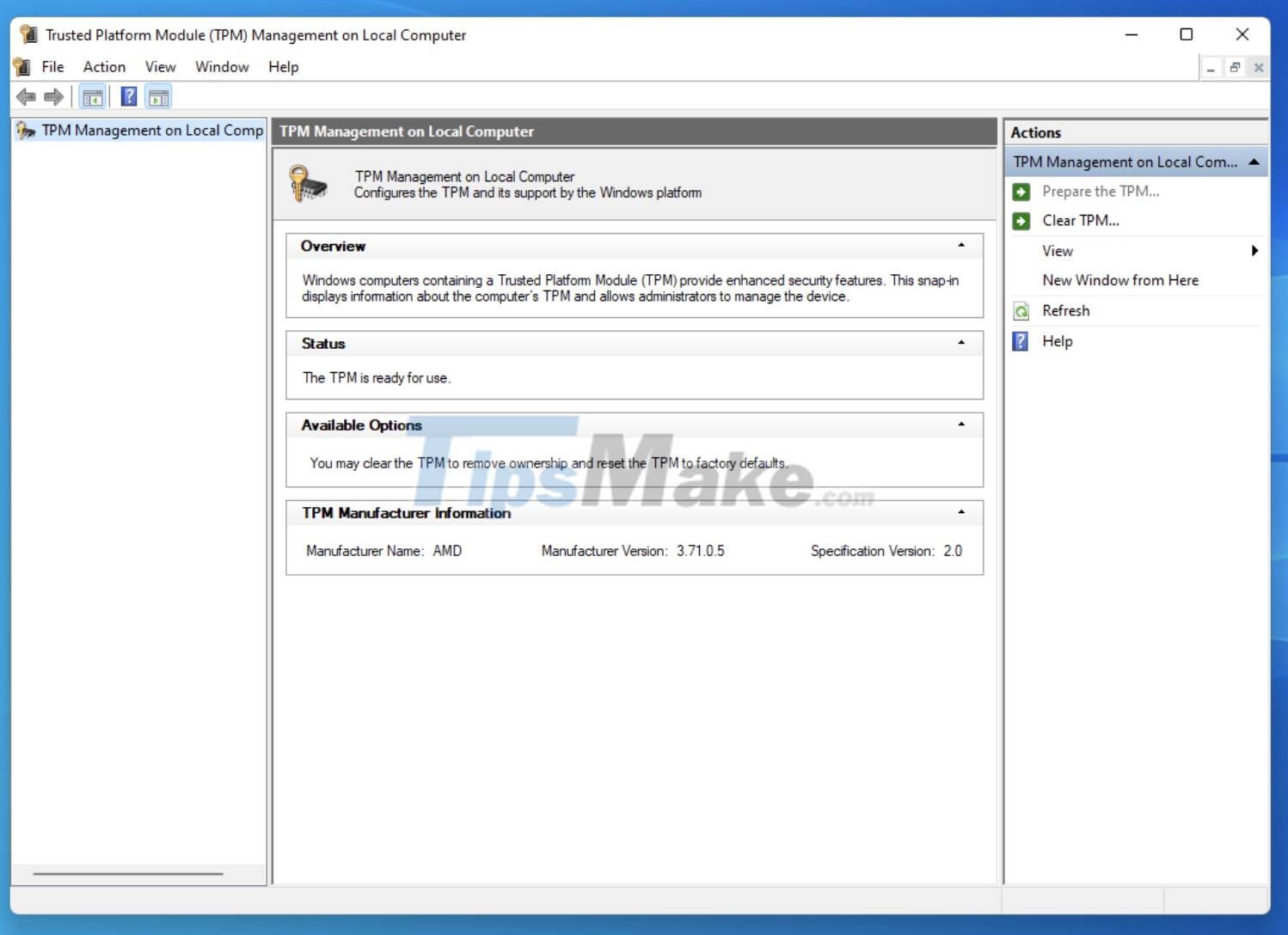How to bypass TPM 2.0 requirement to install Windows 11
The problem here is that even relatively modern computers, the hardware is still quite powerful, but still does not support TPM 2.0, which means that only machines from the last few years will officially meet the requirements. Minimum requirements for Windows 11.

However, recently Microsoft itself has revealed a way to 'break through', to upgrade Windows 10 machines to Windows 11 without fully meeting TPM 2.0 requirements. You will still need support for TPM 1.2, but that should be enough for a lot of machines to upgrade.
As outlined by Microsoft on the company's support page, you need to make sure that you have TPM 1.2 enabled in the BIOS. The easiest way to check if the feature is enabled is to press Win + r and type tpm.msc. The version of TPM you have is also displayed in the bottom right corner. If it's not enabled, you'll need to go into the BIOS and turn it on.

The modification is also quite simple. Just press Win + r and type regedit.
Go to the Registry key
HKEY_LOCAL_MACHINE/SYSTEM/Setup/MoSetup
then right click in the window and select create a new DWORD (32-bit) Value with the name AllowUpgradesWithUnsupportedTPMOrCPU and set its value to 1.

With this tweak, you can already install Windows 11 if the other minimum hardware is met:
- Processor: 64-bit 2 cores 1 GHz or higher
- 4 GB RAM
- Capacity: 64 GB
- UEFI System Firmware and Enable Secure Boot
However, if it's not urgent, you don't need to upgrade to Windows 11 right away. Although Windows 11 has some compelling features, like any new operating system, there are always bugs and problems during the new release period, so you should consider installing after everything is stable. than.
You should read it
- ★ How to download Windows 11, download official Win 11 ISO from Microsoft
- ★ Steps to update Windows 11 official on windows computer
- ★ Microsoft announced the official launch date of Windows 11, which will be a free update
- ★ Instructions for installing Windows 8.1 on Mac
- ★ Instructions for upgrading Windows 7 to Windows 8 and Windows 8.1